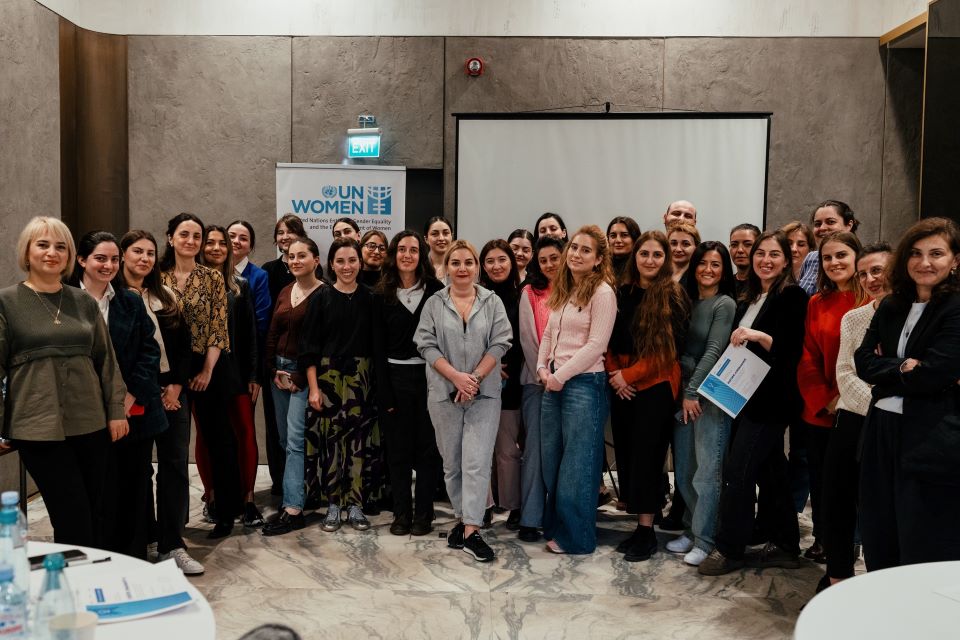UN Women’s certificate course on sexual harassment gaining in popularity
Date:

Through consistent and appropriate policies, business companies can play a special role in introducing inclusive approaches in the workplace, creating a non-discriminatory, equal environment, and preventing and effectively responding to sexual harassment.
One important aspect of the partnership between UN Women and the private sector in Georgia involves cooperation on these topics. Since 2016, UN Women has been sharing best practices in combating sexual harassment with enterprises that have signed on to the United Nations Women’s Empowerment Principles (WEPs) and, among other things, has been helping these companies to implement optimal approaches.
It is this experience that formed the basis of a four-day certificate programme that UN Women has developed for the private sector. It aims to raise awareness and sensitivity about sexual harassment and its causes and consequences, as well as to train private sector workers in the prevention of sexual harassment and the implementation of response mechanisms.
During the programme, participants learn what sexual harassment means and why its prevention is important, what practical steps should be taken to implement a sexual harassment mechanism, and how such facts should be studied with a victim-centred approach. If necessary, those working in the private sector have the opportunity to receive individual consultations from UN Women representatives and experts in the field.
It is noteworthy that 24 applicants completed the programme in 2024, and all of them commited to creating a sexual harassment prevention mechanism in their respective workplaces.
Ana Nishnianidze, Head of the Human Resources Management Department at Global Benefits Georgia, was among the participants, noting: “It would seem that it is very easy to detect and recognize sexual harassment; however, the trainings clearly showed how hidden such cases can be, especially in the workplace. The examples we discussed once again convinced me how important it is for each person to be able to identify this problem and know what steps to take to eliminate it.” Ana says that she intends to share her knowledge on the topic herself, adding: “We also plan to introduce a sexual harassment complaints mechanism in the company and conduct relevant trainings. We believe that if we take care of raising awareness, the number of cases of sexual harassment in the workplace will ultimately decrease significantly.”
The certificate programme on sexual harassment prevention and response mechanisms is continuing in 2025. The programme is implemented within the framework of the Women’s Economic Empowerment component of the UN Women project “Good Governance for Gender Equality in Georgia”, which is funded by the Norwegian Agency for Development Cooperation (Norad). The programme is also supported by the UN Women Regional Office for Europe and Central Asia programme “Women’s Increased Leadership for Resilient and Peaceful Societies”, which is implemented with the support of the Government of Denmark.